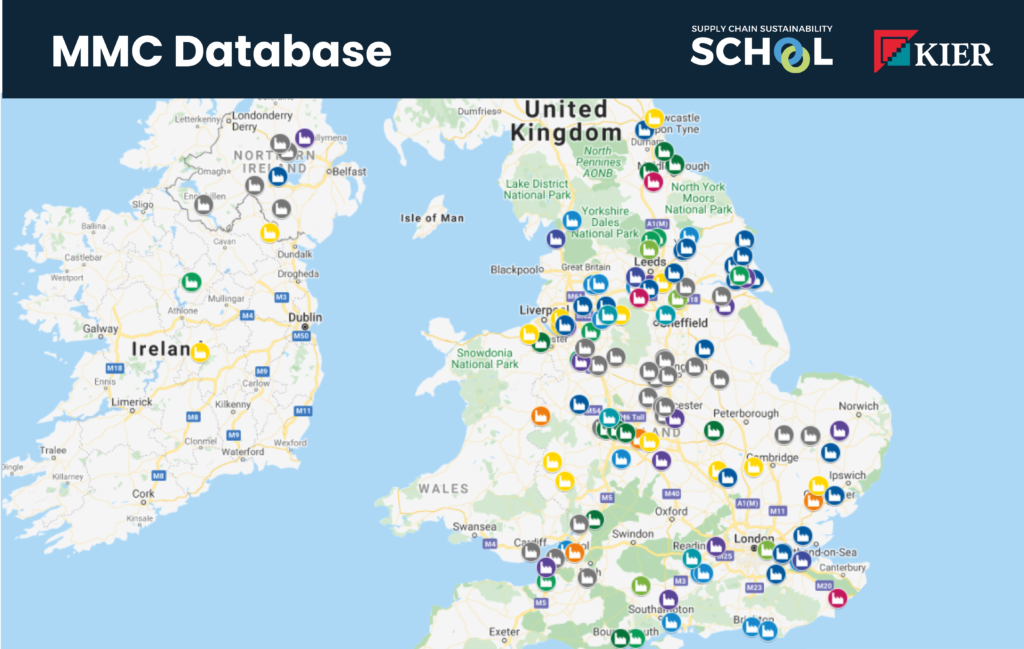The Supply Chain School working with Build Offsite has today launched the Smart Construction Network, building on a Construction Leadership Council (CLC) Innovation in Buildings Workstream review. The review identified a need for “Centres of Excellence” to support the uptake of Smart Construction techniques, materials, and processes amongst construction suppliers, sub-contractors, and contractors.
By providing a free and easy to use tool that locates these centres, the Network aims to encourage the uptake of Smart Construction across the sector, connecting businesses to a national network of leading research and development organisations. These Centres of Excellence are universities and innovation organisations, which will allow the sharing of skills and knowledge to enable best practice, inspire collaboration and showcase new opportunities.
There are over 20 organisations in the Network with the Manufacturing Technology Centre, National Composites Centre, Construction Scotland Innovation Centre and the Universities of Cambridge, Reading, Salford, and Huddersfield all speaking at the conference.
Keith Waller, Programme Director, Construction Innovation Hub who provided the keynote address said:
“Collaboration between the universities and research centres that are leading innovation in our sector is essential to help construction businesses accelerate and focus their investment on R&D. The Smart Construction Network provides a simple, quick and easily accessible way for businesses to find those centres with the right knowledge local to them.”
Smart Construction Network helps address the government’s goal to “build back better”, which will require improved skills, processes, techniques, and materials to achieve higher performing buildings and infrastructure. The Network will foster collaboration and ultimately accelerate innovation in the industry.
Ian Heptonstall, Director of the Supply Chain School commented,
“Build back better is a great phrase, but to do this, we as an industry need to do things differently. That means we need to innovate and invest in research and development. The Smart Construction Network will allow businesses large and small to engage with the organisations leading the thinking in innovative construction techniques, materials, and processes. Through this knowledge and collaboration, we hope to see an acceleration in innovation.”
The UK construction industry is second bottom in the league of R&D investment, while construction productivity has flat lined over the last 30 years, compared to the near doubling of productivity in manufacturing, according to leading consultants, McKinsey.
Shelagh Grant, Chief Executive of the Housing Forum, who chairs the Smart Construction Network, said that although many businesses are keen to become smarter in construction, they are lacking a tool that will help them make the first steps.
She said “We know there are many construction businesses out there that would like to make the journey towards smarter construction but are perhaps uncertain about how and where to begin that journey.
Across the Smart Construction Network, our members offer an extensive range of world-leading expertise. In collaborating to create this free digital resource, we want to help accelerate the pace of transformation in our sector by making it easier for businesses of all sizes to identify and access the type of expertise and support that is right for them.”
The Supply Chain School, who is a member of the Network, provides training free training to industry to enable businesses to build more efficiently buildings and infrastructure that performs better and help us tackle the key sustainability challenges our industry faces.
You can find the tool here.



Recent Comments
with Flannery Plant Hire as the first signatory